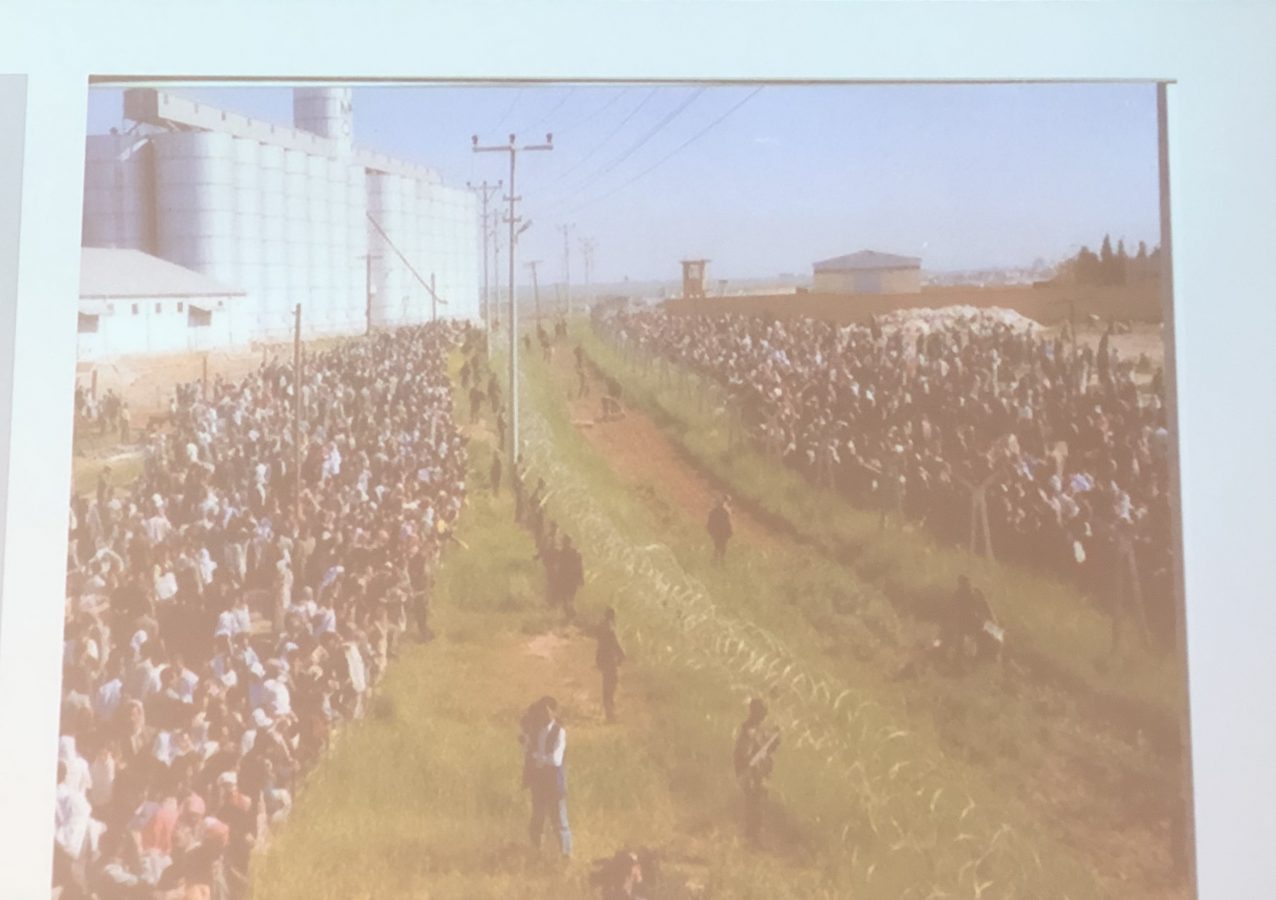Our final GVPS Lecture of this semester’s series saw Dr. Savaş Ergül present Breaking the Border: Experiences of Kurds in the Middle East. Situating the history of Kurdish people, Ergül demonstrated the lived experiences of Kurdish people throughout Turkey, Iran, Iraq and Syria.
First interrogating the concept of borders as a place of violence, tragedy and contradiction, Ergül, in the context of Kurdistan, questioned if and how national identities are constructed without borders.
Ergül presented the Kurdish issue as one of singularity; an exception to the rule of the Middle East. Situated within Turkey, Iran, Iraq and Syria, Kurds live in a landlocked territory without an official recognition of Kurdistan or Kurdish people. As one of the last ethnic populations without a sovereign state, Ergül probed the hypothetical nature of Kurdistan, since the state cannot be drawn on a map. Furthermore, since Kurdish people have historically objected representation by a single government, feeling that one cannot effectively and collectively present their case, this group is fragmented and have, perhaps unique in the face of would-be-similar movements, never recognised a national leader.
Paying particular attention to the fragmented nature of Kurds in the Middle East, Ergül portrayed the division of the population within official states. With the highest percentage of Kurds, an estimated 20 per cent of the Kurdish population lies within Turkey; Syria has the second highest population of Kurds with an estimated 15 percent; Iraq’s Kurdish population is estimated at 12.5 to 15%, and Iran is estimated to be home to an estimated 10 per cent of the Kurdish population. Whilst Ergül demonstrated that as a consequence of colonisation Kurds have largely integrated and assimilated within Syria, in the other three states of Turkey, Iran and Iraq, Kurds have objected to assimilation.
Delving into further detail about the unique nature of the experience of Kurds, Ergül highlighted the complexities that comprise the Kurdish issue. Ergül presented that since Kurdish areas overlap nation state borders, Kurdish borders have always been transnational; Ergül probed whether there is another group who are divided by four states. In addition, Ergül portrayed the grave challenges faced by Kurds who, marginalised by the nation state(s), are among the poorest in each of the four aforementioned states.
Despite Kurds approximating a total population of 36-45 million in 2016, Ergül demonstrated that the precise number of Kurdish people is unknown as a result of the official banning of the census tracking of Kurds in the Middle East; this group are not recognised as legitimate. Ergül therefore probed the Fantasma of Kurdistan, whereby some argue that Kurdistan does not exist and presents a haunting of the Middle East. Ergül depicted particular efforts of Middle Eastern powers, who have a collective agenda against the formation of an official Kurdistan.
Ergül transitioned into a presentation of the horrific atrocities faced by Kurdish people throughout the four states, particularly in the case of the killings of Kurdish smugglers. The ‘Kolbars’, literally meaning those who carry on their back (‘kol’ means back in Kurdish and ‘ber’ means bearer), smuggle an assortment of products, tobacco, cigarettes, alcohol, clothes, home appliances, washing machines etc, in order to make a living. The incidents of tragedy and killings of smugglers, in addition to the massacres of Kurds in the four states, have notably been met without international response.
Concluding his lecture, Ergül highlighted the nation states’ growing obsession with borders, demonstrating that Turkey, for example, recently completed the construction of a 764 kilometre concrete wall along its border with Syria in 2018. Whilst borders can offer the guise of protection and security from other countries, borders also fragment this particular group – the Kurdish people.

